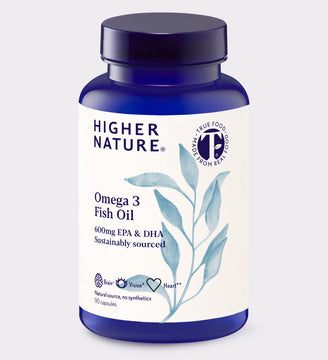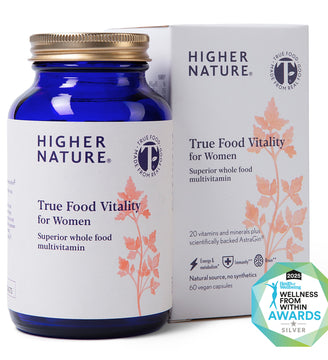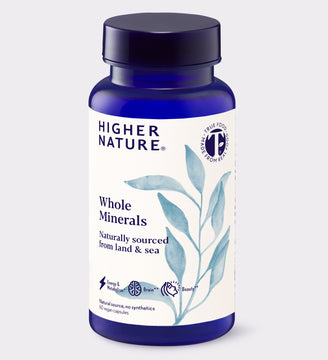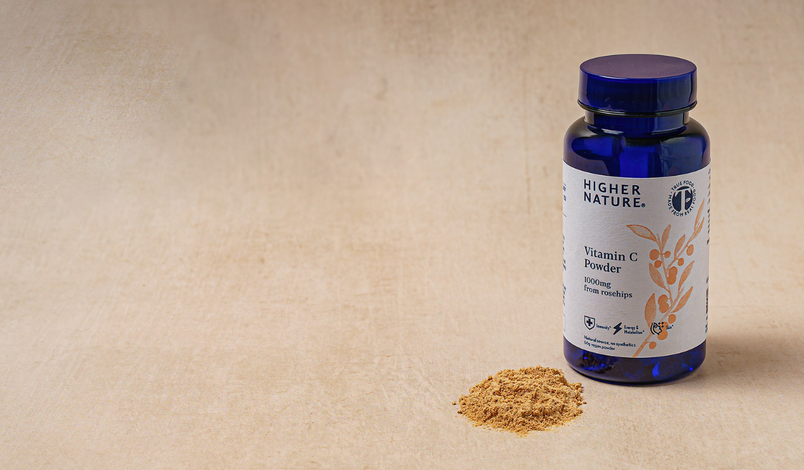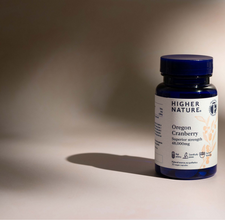
Spotlight on the menopause
Higher Nature Nutrition Team
The menopause is a natural progression for every woman and typically begins between the ages of 40 and 50. Each woman will experience the menopause in a different way. The symptoms women experience during menopausal changes can vary with some women experiencing intense symptoms that affect their day to day lives, while others progress through the menopause with relative ease.
Symptoms include
- Hot flushes
- Fatigue
- Night sweats
- Memory loss
- Insomnia
- Muscle pains
- Mood swings
- Hair loss
- Depression
- Shrinkage of breasts
- Vaginal dryness
- Headaches
- Dry skin
- Low libido
- Weight gain
- Skin thinning
Factors involved
Stress, poor diet and poor gut health can all play a role in the severity of symptoms.
Associated conditions
Post-menopausal women are predisposed to an increased risk of cardiovascular disease and often show an increase in inflammatory markers. Osteoporosis risk is also increased because oestrogen offers a protective mechanism for bones and when levels decline the mechanism fails, resulting in bone loss
Useful nutrients
During the menopause there are many areas that may need support in order to relieve symptoms. Every woman has their own individual experience of the menopause and this will impact on which nutrients to choose and when.
Hot flushes and night sweats
Black Cohosh and hops are natural plant oestrogens that aid hormone balance. Valerian and magnesium have also been shown to reduce the occurrence and severity of hot flushes.
Stress
For those in need of adrenal support, nutrients such as magnesium, vitamin C, B5, tyrosine, and are important. The herbs rhodiola, ginseng and liquorice all help the adrenals to cope with stress.
Mood
Omega 3 fatty acids, tryptophan and 5-HTP are known to be supportive. St Johns Wort, is well known to be effective and also improves the incidence of hot flushes, particularly when combined with Black Cohosh.
Gut health
Good gut health is vital during the menopause as the live bacteria naturally present in the gut play important roles in hormone balance and converting nutrients to active forms.
Bones
Calcium, magnesium, vitamin D, silicon, boron and zinc are all essential. Collagen and vitamin C also have an important role in bone structure. Vitamin K2 and soy isoflavones show a protective mechanism against the loss of bone mineral density
Cardiovascular system
Magnesium, omega 3 fatty acids, vitamin C, vitamin K2, plant sterols, vitamin D, and vitamin E, are all supportive of cardiovascular health.
Dietary advice
In order to offer dietary support through the menopause, it is wise to adopt a low GI diet and avoid refined and sugary foods. Including plant oestrogens, such as flax seeds, chickpeas, lentils and wholegrains may aid in hormone balance. Increasing the brassica vegetables like broccoli, cabbage, cauliflower, Brussels sprouts and kale have also been shown to be of great use. Keep saturated fats in red meat, fried and processed foods low and oily fish rich in omega 3 should ideally be eaten three times a week. Avoiding alcohol, spices and caffeine may assist in the reduction of symptoms such as hot flushes and also reduce blood sugar imbalances.
Lifestyle advice
Regular exercise has been shown to increase bone density and muscle mass, reduce cardiovascular risk factors, improve circulation and heart function. It also helps with menopausal symptoms and improves mood and energy levels.
Different nutritional approaches may be of use to support changes during the menopausal period, so rest assured there are plenty of solutions to ease those troubling symptoms.


